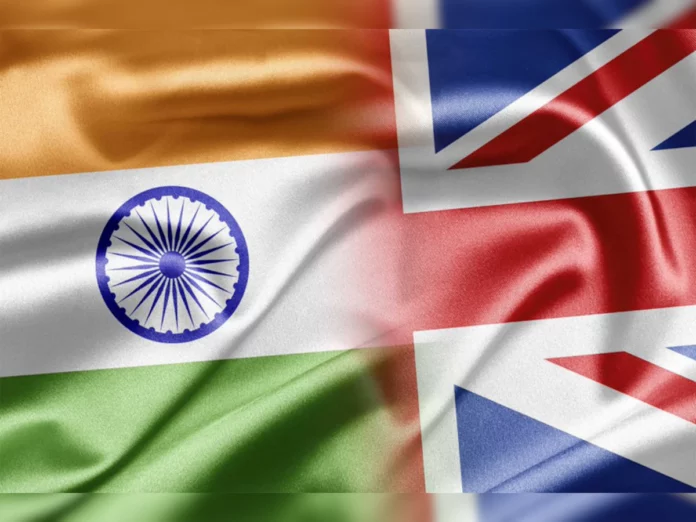“Most minority groups continue to earn less than their white British counterparts, and all earn less on average than we would expect given their education, background and occupation. Evidence of discrimination in the labour market is clear, and wealth inequalities are likely to prove especially hard to shift.”
— Professor Heidi Safia Mirza of University College London
The Indian diaspora in Britain not only earns more than any other immigrant group, but their average earnings are more than their white peers. The news comes at a time when racial discrimination is at a high, according to a report in nationalheraldindia.
A study by the Institute for Fiscal Studies (IFS), a leading independent thinktank, found that despite improved educational attainment among south Asians and black African groups over the past decade, minorities still trail white people on wages.
“Most minority groups continue to earn less than their white British counterparts, and all earn less on average than we would expect given their education, background and occupation. Evidence of discrimination in the labour market is clear, and wealth inequalities are likely to prove especially hard to shift,” said Professor Heidi Safia Mirza of University College London.
Even so, the average British Indian man earned 13 per cent more than the white average man. “Indian men, both immigrant and UK-born, have enjoyed rapid average wage growth. Black Caribbean men have not,” the study said.
Even as the British-Indian is doing well, Indian languages in British schools is on the decline with official figures showing a sharp drop in the number of pupils studying Gujarati, Bengali and Punjabi in recent years
In contrast, the average weekly earnings of Bangladeshi men were 42 per cent below the white average in 2019; the figure was 22 per cent for Pakistani men and 13 per cent for Caribbean men.
The findings are consistent with previous studies that Indian immigrants are better educated, more aspirational and professionally successful than other South Asian communities.
Even as the British-Indian is doing well, Indian languages in British schools is on the decline with official figures showing a sharp drop in the number of pupils studying Gujarati, Bengali and Punjabi in recent years.
Between 2015 and 2021, the number of students choosing these languages for the General Certificate of Secondary Education (GCSE)—similar to secondary school board exams in India—fell drastically. Gujarati saw the biggest decline with 77 per cent, Bengali at 66 per cent, Punjabi at 45 per cent and Urdu at 37 per cent.
Strangely, calls for action to do something about it have come not from Indian community leaders, but from British politicians. The initiative is being led by Labour Party’s Gareth Thomas, a Member of Parliament for London’s Harrow West constituency, a prominent Gujarati suburb.
- The average weekly earnings of Bangladeshi men were 42 per cent below the white average in 2019; the figure was 22 per cent for Pakistani men and 13 per cent for Caribbean men.
- The findings are consistent with previous studies that Indian immigrants are better educated, more aspirational and professionally successful than other South Asian communities
“The teaching of South Asian languages is critical to Britain’s economic future as well as an opportunity for academic excellence among young people in our country,” he said calling for ring-fenced funding, specialist training of teachers, support for community schooling and specialist teacher training are needed to stem the decline.
“Ministers’ failure to invest in these languages is leading to a marked decline in the number of students taking exams,” he told the House of Commons.
Mandarin and Latin receive special funding to invest in new teaching, and he wanted the same courtesy to be extended to Indian languages. “Similar investment and commitment is needed to kickstart a new generation of young people able to communicate with the peoples of South Asia in their own languages to boost trade, open up business opportunities and assist in improving our collective security,” he said.
*********************************************************************
Readers
These are extraordinary times. All of us have to rely on high-impact, trustworthy journalism. And this is especially true of the Indian Diaspora. Members of the Indian community overseas cannot be fed with inaccurate news.
Pravasi Samwad is a venture that has no shareholders. It is the result of an impassioned initiative of a handful of Indian journalists spread around the world. We have taken the small step forward with the pledge to provide news with accuracy, free from political and commercial influence. Our aim is to keep you, our readers, informed about developments at ‘home’ and across the world that affect you.
Please help us to keep our journalism independent and free.
In these difficult times, to run a news website requires finances. While every contribution, big or small, will makes a difference, we request our readers to put us in touch with advertisers worldwide. It will be a great help.
For more information: pravasisamwad00@gmail.com



